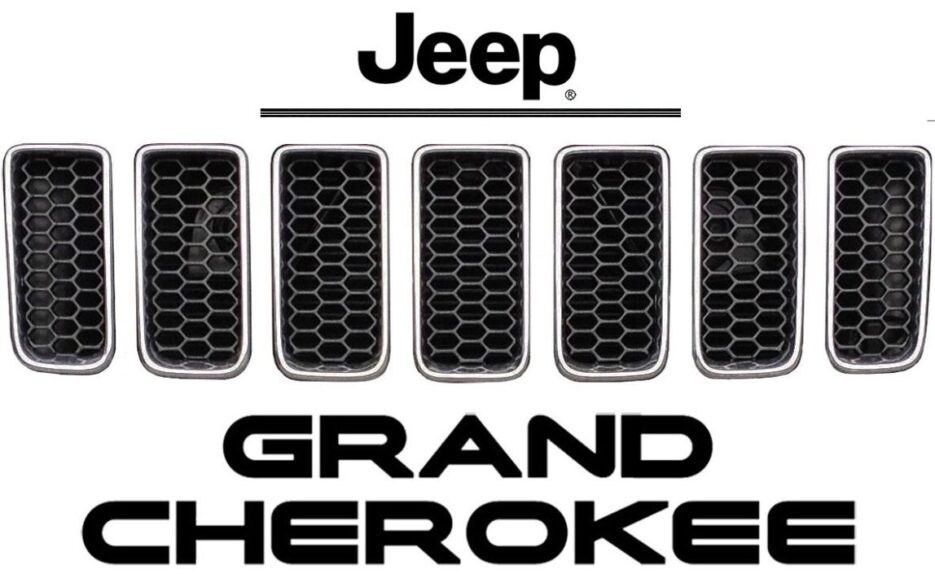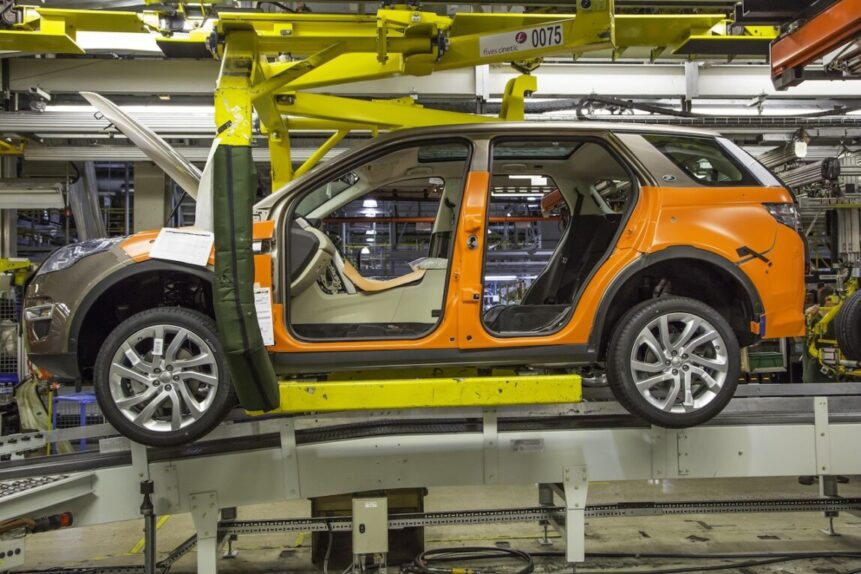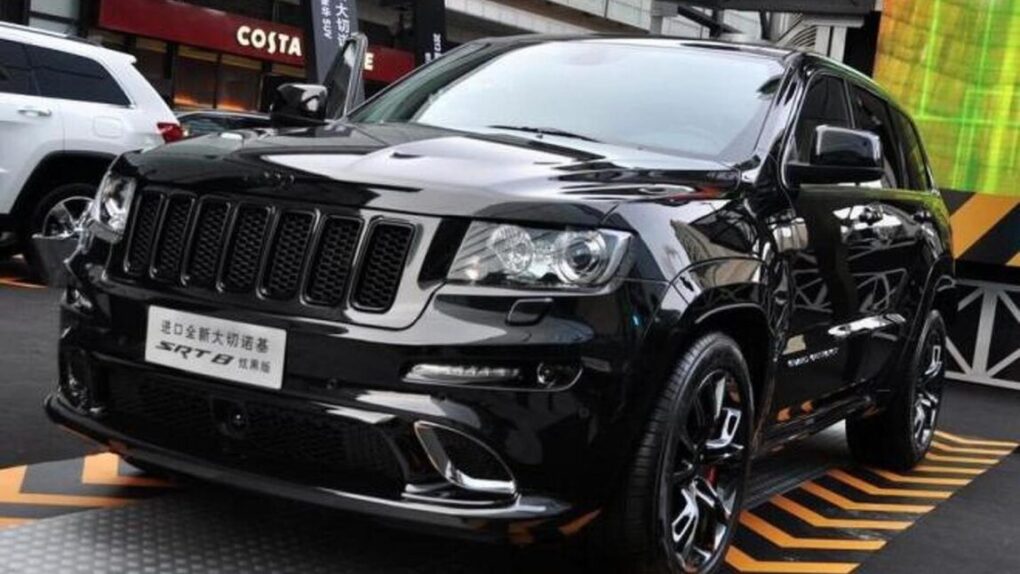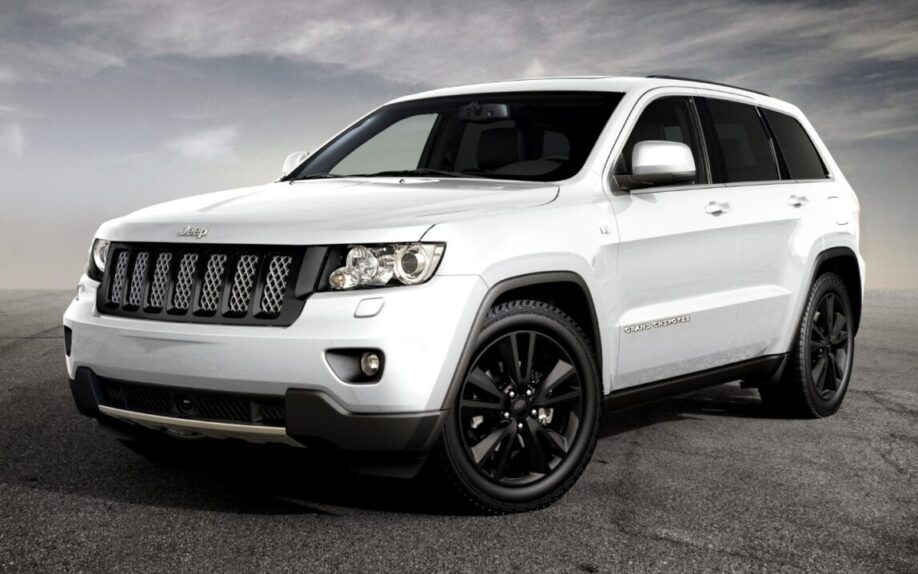Table Of Contents
- 1 Where the Jeep Grand Cherokee is currently made
- 2 Overview of the article and its purpose
- 3 Importance of knowing where a vehicle is made
- 4 History of the Jeep Grand Cherokee
- 5 Jeep Grand Cherokee Made in the USA: The Detroit plant
- 6 Jeep Grand Cherokee Made in Austria: The Magna Steyr plant
- 7 Jeep Grand Cherokee Made in China: The Guangzhou plant
- 8 Where Jeep Grand Cherokee Made: FAQ
- 8.1 Q: Are all Jeep Grand Cherokees made in the USA?
- 8.2 Q: Are Jeep Grand Cherokees made in China of lower quality?
- 8.3 Q: Does where a Jeep Grand Cherokee is made affect its resale value?
- 8.4 Q: Can I visit the Jeep Grand Cherokee manufacturing plants?
- 8.5 Q: Does Jeep plan to expand manufacturing to other regions in the future?
- 9 Brief overview of the Jeep Grand Cherokee
- 10 Conclusion
Where the Jeep Grand Cherokee is currently made
Overview of Jeep’s manufacturing plants
Jeep has several manufacturing plants around the world where they produce their vehicles. These plants are located in North America, Europe, Asia, and South America. Each plant is responsible for producing specific models of Jeep vehicles.
Details about the plants that produce the Grand Cherokee
The Jeep Grand Cherokee, that indomitable force of off-road prowess and automotive resilience, is presently being fashioned and constructed across a triad of prodigious manufacturing plants dispersed throughout the globe. The foremost among them, situated in Detroit, Michigan, the United States of America, has been fervently engaged in the manufacturing of Grand Cherokees since the epochal year of 1992, churning out a superfluity of Grand Cherokees which constitute the preponderant share of those sold in North America.
The second plant that produces the Grand Cherokee is located in Graz, Austria, and is owned by Magna Steyr. This plant has been producing the Grand Cherokee since 2011 and is responsible for producing Grand Cherokees that are sold in Europe and other international markets.
The third plant that produces the Grand Cherokee is located in Guangzhou, China. This plant has been producing the Grand Cherokee since 2014 and is responsible for producing Grand Cherokees that are sold in China and other Asian markets.
Discussion of the impact of manufacturing location on the quality of the vehicle
It is an irrefutable fact that the geographic location of a vehicle’s production can exert a formidable impact on the quality of its fabrication. In certain countries, the standards and strictures of quality control are markedly more stringent and exacting, thereby conferring upon their vehicles a commensurately higher degree of quality and excellence. Moreover, the labor practices and environmental regulations that prevail in disparate countries can profoundly influence the manufacturing process, in turn affecting the final outcome of the product’s quality and durability. Ergo, the determination of the place of origin for the vehicle in question is a paramount consideration in ascertaining its intrinsic value and merit.
It is an incontrovertible truth that Jeep, that intrepid purveyor of durable and reliable vehicles, has garnered an estimable reputation for producing vehicles of the highest caliber, irrespective of the location of their manufacture. Nevertheless, discerning consumers may hold their own particular predilections when it comes to the purchasing of vehicles constructed in specific countries or regions. Moreover, it is salient to acknowledge that disparate manufacturing plants within the same company may espouse differing standards and protocols, thereby imparting a distinctive flavor to each and every vehicle that rolls off their respective assembly lines. Consequently, it is of paramount importance to conduct a thorough and exhaustive inquiry into the vehicle of interest, poring over the latest reviews and conducting meticulous research to obtain a comprehensive understanding of the vehicle’s quality and craftsmanship, regardless of its provenance.
Overview of the article and its purpose
The purpose of this article is to provide readers with information about where the Jeep Grand Cherokee is made. The article will explore the history of the Grand Cherokee, the manufacturing plants that produce the vehicle, and the implications of manufacturing the vehicle in different countries. By the end of the article, readers will have a better understanding of where the Grand Cherokee is made and how that may impact their decision to purchase the vehicle.
Importance of knowing where a vehicle is made
It is incumbent upon the savvy consumer to possess a degree of knowledge regarding the origin of a vehicle, for sundry and multifarious reasons. Chief among these is the fact that the country of manufacture can exert a considerable influence on the quality and reliability of the vehicle in question. Indeed, disparate nations espouse a vast array of manufacturing processes and standards, which can ultimately yield either a superlative or mediocre performance for the vehicle. As an illustrative example, a vehicle created in a country that adheres to lower manufacturing standards may exhibit a propensity for defects, and necessitate more frequent and costly repairs over time, thereby expending more of the owner’s valuable time and resources.

Another reason why knowing where a vehicle is made is important is due to consumer preferences and values. Some people may prefer to buy vehicles that are made in their home country as a way to support local industries and economies. Others may prioritize vehicles that are made in countries with a reputation for quality manufacturing and ethical labor practices.
Additionally, knowing where a vehicle is made can impact the availability of replacement parts and service. If a vehicle is made in a country where it is not sold, it may be more difficult and expensive to obtain parts and service for that vehicle in other countries.
To sum up, having knowledge about the location of a vehicle’s production can aid consumers in making informed choices regarding their purchases. This can ultimately ensure that they receive a dependable and top-quality product that aligns with their individual values and preferences.
History of the Jeep Grand Cherokee
Origins of the Jeep brand
The Jeep brand has a rich history dating back to the 1940s. The brand was created by the American military during World War II to produce rugged and reliable vehicles for use in combat. The original Jeep vehicle, the Willys MB, was instrumental in the Allied victory in the war. After the war, Jeep began producing civilian vehicles, including the Jeep CJ-2A, which was the first civilian Jeep vehicle.
Introduction of the Grand Cherokee in 1993
In the year of our Lord 1993, Jeep did unveil its new creation, the Grand Cherokee, which aimed to compete with other mid-size SUVs such as the Ford Explorer and Chevrolet Blazer. This exquisite vehicle was crafted to be more luxurious and sophisticated than previous Jeep models, yet it maintained its iconic off-road capabilities. The first iteration of the Grand Cherokee was propelled by a 4.0-liter inline-six engine, and it was equipped with a full-time four-wheel drive system and an advanced suspension setup.
Development and evolution of the Grand Cherokee over the years
The Grand Cherokee, introduced in 1993, was designed to be a more comfortable and refined mid-size SUV with Jeep’s legendary off-road capabilities. Its first generation was powered by a 4.0-liter inline-six engine and featured full-time four-wheel drive and a sophisticated suspension system. Since then, the Grand Cherokee has undergone several updates and redesigns. The second generation, introduced in 1999, had a more streamlined exterior design and improved on-road handling. The third generation, introduced in 2005, was even more refined with luxury amenities. In 2011, the fourth generation was introduced with even more luxury and comfort and new technology features such as a touchscreen infotainment system and rearview camera. The latest generation, introduced in 2021, has a new platform, updated styling, and advanced safety features. The Grand Cherokee has remained one of the most popular SUVs on the market due to its combination of off-road capabilities, comfort, and versatility.
Jeep Grand Cherokee Made in the USA: The Detroit plant
Overview of the Detroit plant’s history and significance
With a history dating back to 1992, the Detroit plant, also called the Jefferson North Assembly Plant, holds a special place in the hearts of Jeep fans. It’s where the first-ever Grand Cherokee was brought to life, and it’s been churning out top-notch Jeep vehicles ever since. Nowadays, the plant is responsible for producing a variety of iconic vehicles, including the Grand Cherokee, the Dodge Durango, and the Jeep Wagoneer and Grand Wagoneer. With its impressive track record, it’s no wonder the Detroit plant remains a cornerstone of Jeep’s manufacturing operations.
The Detroit plant is also significant because it represents Jeep’s commitment to manufacturing vehicles in the United States. Jeep has a long history of producing vehicles in the United States, and the company has invested heavily in its American manufacturing plants in recent years.
Details about the Jeep manufacturing process at the Detroit plant
The Detroit plant, also known as the Jefferson North Assembly Plant, is a hub of advanced technology and automation in vehicle manufacturing. It boasts a state-of-the-art body shop that’s powered by robots and high-end welding and assembly techniques to produce a quality vehicle body. Moreover, the plant has an eco-friendly paint shop that utilizes advanced processes to produce a top-notch finish. The final assembly line is where the magic happens, with skilled workers installing critical components such as the engine and interior to complete the vehicle.
The Detroit plant, throughout the manufacturing process, relies on a team of skilled workers who work diligently to ensure that every vehicle that rolls off the assembly line meets Jeep’s exacting standards for quality and reliability. The plant’s safety measures are comprehensive and advanced, designed to protect workers and enhance the overall efficiency and effectiveness of the manufacturing process.
Discussion of the benefits of buying an American-made Jeep Grand Cherokee
American-made vehicles, such as the Jeep Grand Cherokee manufactured at the Detroit plant, offer a plethora of advantages for consumers. Supporting American jobs and bolstering the nation’s economy are just a couple of these perks. Furthermore, American-made vehicles are often held to more stringent quality control standards than their foreign-made counterparts, leading to a superior product. Purchasing an American-made vehicle also offers environmental benefits by reducing the carbon footprint created by transporting vehicles over long distances.
When it comes to buying vehicles, consumers have a lot of options to consider. While some prioritize factors like fuel efficiency or style, others may place a greater emphasis on factors like where the vehicle is made. For those who value buying American-made products, the Jeep Grand Cherokee produced at the Detroit plant can be an attractive choice. Purchasing an American-made vehicle can support domestic jobs and contribute to the country’s economy. Additionally, American-made vehicles may be subject to stricter quality control standards than those produced in other countries, resulting in a potentially higher quality product. However, it’s important to note that not everyone may prioritize buying American-made vehicles, and each consumer should consider their own unique values and preferences when making purchasing decisions.
Jeep Grand Cherokee Made in Austria: The Magna Steyr plant
Overview of the Magna Steyr plant’s history and significance
The Magna Steyr plant is located in Graz, Austria, and has been producing the Jeep Grand Cherokee since 2011. The plant is operated by Magna Steyr, an Austrian engineering and manufacturing company that produces vehicles for a range of global automotive brands. The Magna Steyr plant is significant because it represents Jeep’s decision to outsource some of its manufacturing to other countries.
Details about the Jeep manufacturing process at the Magna Steyr plant
In the Magna Steyr plant, the manufacturing process is top-notch and uses advanced technology to produce top-quality vehicles, similar to the Detroit plant. The body shop, paint shop, and final assembly line are all equipped with state-of-the-art equipment. Skilled workers are responsible for ensuring that each vehicle meets the rigorous quality and reliability standards set by Jeep. The Magna Steyr plant also uses advanced manufacturing processes and technology to ensure that each vehicle is produced to the highest standards.

Discussion of the benefits and drawbacks of outsourcing manufacturing to other countries
Outsourcing manufacturing to other countries like Austria can have several benefits for companies like Jeep. For one, it can help to reduce labor costs, as labor is often cheaper in other countries. Outsourcing can also allow companies to tap into the expertise and technology of specialized manufacturers like Magna Steyr, which can lead to more efficient and effective manufacturing processes.
Outsourcing, while sometimes a tempting option for companies seeking to reduce costs and increase efficiency, can also have some gnarly downsides. For starters, it can cause major bummers like job losses in the country of the outsourcing company, which is a major bummer for everyone involved. Additionally, outsourcing can be a real pickle when it comes to quality control. After all, companies may not have the same level of control over the manufacturing process when it’s being outsourced to another country. And let’s face it, no one wants a shoddy product, am I right?
The decision to outsource manufacturing can be a complex one, as it involves weighing a variety of factors. Companies must consider their goals, including cost savings and increased efficiency, as well as the availability of skilled labor in different countries. They must also consider the potential impact on their reputation and bottom line, as outsourcing can be seen as a negative by some customers and stakeholders. Ultimately, whether outsourcing manufacturing is a good or bad decision depends on a range of factors, and each company must carefully consider its own unique circumstances before making a decision.
Jeep Grand Cherokee Made in China: The Guangzhou plant
Overview of the Guangzhou plant’s history and significance
The production of the Jeep Grand Cherokee at the Guangzhou plant, situated in Guangzhou, China, is a product of a joint venture between Guangzhou Automobile Group and Fiat Chrysler Automobiles (FCA). Jeep’s decision to broaden its manufacturing scope to different parts of the world is showcased in this plant, which has been producing the Jeep Grand Cherokee since 2013.
Details about the Jeep manufacturing process at the Guangzhou plant
The Guangzhou plant is a key player in Jeep’s global manufacturing strategy, with advanced technology and a highly skilled workforce producing top-quality vehicles. From the body shop to the final assembly line, the Guangzhou plant’s manufacturing process is on par with other Jeep plants in Detroit and Magna Steyr. With a focus on quality control and attention to detail, the Guangzhou plant ensures that each Jeep Grand Cherokee that rolls off the assembly line meets Jeep’s strict standards.
Discussion of the implications of manufacturing vehicles in China for American consumers
The decision to manufacture vehicles in China can have several implications for American consumers. For one, it can help to reduce manufacturing costs for Jeep, which can lead to lower prices for consumers. However, it can also raise concerns about the quality of vehicles produced in China and the potential for intellectual property theft.

Additionally, manufacturing vehicles in China can raise questions about the ethical implications of doing business in a country that has been criticized for its human rights record. Some consumers may choose to avoid purchasing vehicles made in China for these reasons.
The choice of manufacturing vehicles in China is a multifaceted issue, and companies must carefully evaluate the potential advantages and disadvantages for their specific circumstances. As American buyers, it is crucial to be cognizant of the origin of our vehicles and to take into account the potential consequences of these manufacturing choices when deciding on purchases.
Where Jeep Grand Cherokee Made: FAQ
Q: Are all Jeep Grand Cherokees made in the USA?
A: No, Jeep Grand Cherokees are also manufactured in Austria and China.
Q: Are Jeep Grand Cherokees made in China of lower quality?
A: Not necessarily. The manufacturing process and quality control measures at the Guangzhou plant are similar to those at other Jeep manufacturing plants. However, some consumers may have concerns about the ethical implications of manufacturing in China.
Q: Does where a Jeep Grand Cherokee is made affect its resale value?
A: Is the resale value of a Jeep Grand Cherokee affected by its country of origin? Not necessarily, as several factors, such as the vehicle’s age, condition, and mileage, can impact its value in the used car market. Nevertheless, some buyers might perceive American-made vehicles as more valuable, possibly leading to higher resale prices for a Grand Cherokee manufactured in the USA. Ultimately, the resale value of a car depends on multiple variables, and each customer should assess their priorities and needs when deciding on a vehicle purchase.
Q: Can I visit the Jeep Grand Cherokee manufacturing plants?
A: While some automotive manufacturing plants offer tours for the public, Jeep Grand Cherokee manufacturing plants may not offer public tours due to security and safety concerns. However, some dealerships may offer virtual tours or information about the manufacturing process.
Q: Does Jeep plan to expand manufacturing to other regions in the future?
A: In accordance with the current state of affairs, there have been no indications from Jeep regarding any expansion of their manufacturing operations to other areas. Nevertheless, in light of the ever-changing automotive industry, it remains within the realm of possibility that Jeep might explore additional manufacturing sites down the road.
Brief overview of the Jeep Grand Cherokee
The Jeep Grand Cherokee is a mid-size SUV that has been in production since 1993. It is known for its rugged design, off-road capabilities, and luxurious interior features. The Grand Cherokee is one of the flagship models of the Jeep brand, which is owned by the American automaker, Stellantis.
The Grand Cherokee has undergone an extensive evolution over the years, with every new version introducing a plethora of novel features and enhancements. It is offered in a vast range of trim levels, spanning the Laredo, Limited, Trailhawk, Overland, Summit, and SRT. The vehicle is widely recognized for its commanding engine choices, encompassing a V6 and V8, and its adeptness in navigating different terrains.
The Grand Cherokee has been crowned with multiple awards throughout its production, such as the prestigious SUV of the Year Award from Motor Trend magazine. It has also managed to win over the hearts of many celebrities, with the likes of Arnold Schwarzenegger boasting a personalized version of the SUV. All things considered, the Jeep Grand Cherokee is undoubtedly an esteemed and coveted SUV within the automotive market.
Conclusion
Where Jeep Grand Cherokee Made: Recap of the importance of knowing where a vehicle is made
Knowing where a vehicle is made can provide valuable information about its quality, reliability, and potential ethical implications. It can also be an important factor in purchasing decisions for consumers who prioritize supporting American-made products.
Where Jeep Grand Cherokee Made: Summary of the information presented in the article
This article has provided an overview of the history of the Jeep Grand Cherokee and where it is currently manufactured. We discussed the Detroit plant in the United States, the Magna Steyr plant in Austria, and the Guangzhou plant in China. Each plant has its unique history and significance, and the manufacturing processes vary slightly. We also discussed the potential implications of manufacturing vehicles in different locations for American consumers.
Final thoughts on the future of the Jeep Grand Cherokee and its manufacturing locations
In the midst of Jeep’s ongoing efforts to expand its manufacturing capabilities to various regions worldwide, the question of how this will impact the quality and dependability of its vehicles remains shrouded in mystery. One must also take into account the potential moral implications of manufacturing in countries with varying labor laws and regulations.
The realization that where a car is made matters is critical for buyers, and delving deeper into the manufacturing process can furnish valuable information about a car’s dependability and quality. As the automobile industry continues to undergo change, it will be captivating to observe how Jeep responds to shifting consumer inclinations and desires for domestically-produced items.


